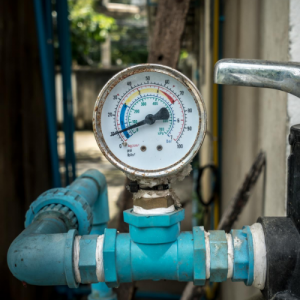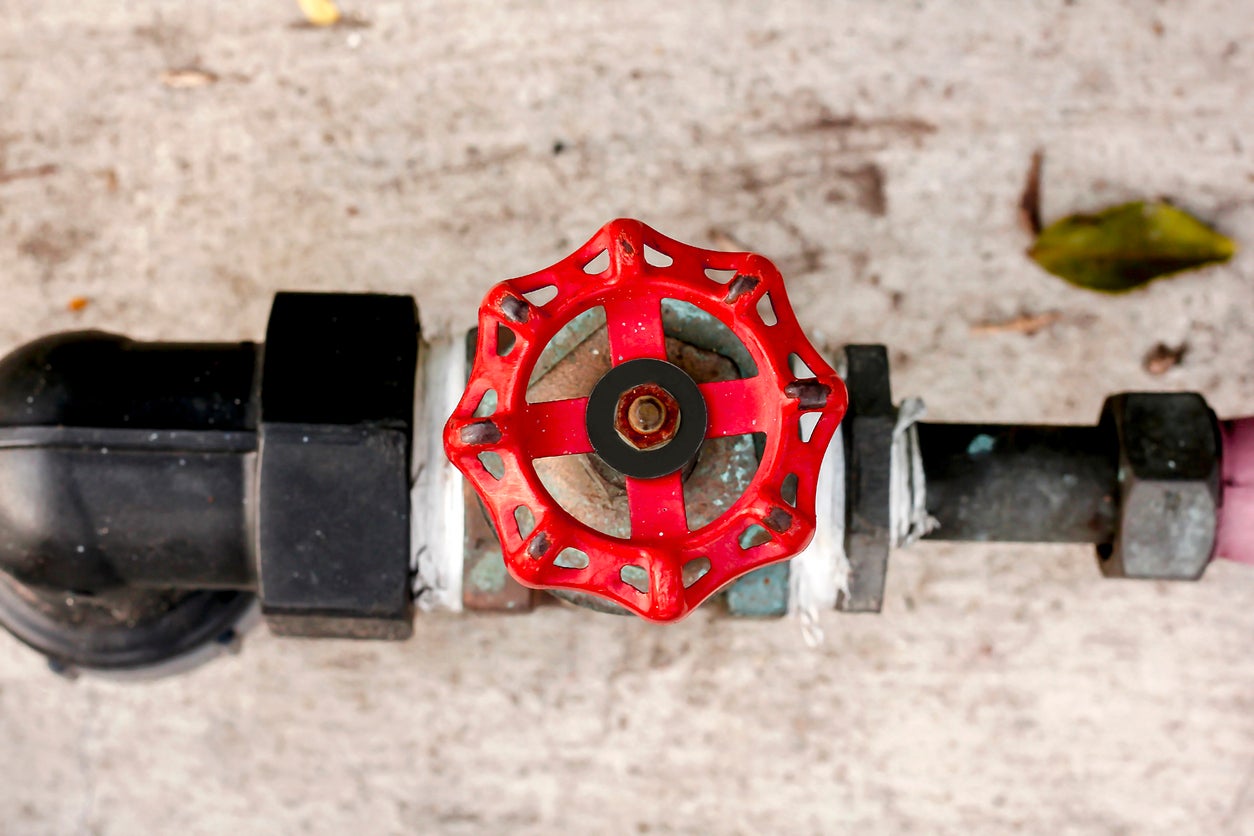An Ultimate Advice to Addressing Low Water Pressure in Your Home
An Ultimate Advice to Addressing Low Water Pressure in Your Home
Blog Article
Are you hunting for suggestions on 9 Reasons for Low Water Pressure in Your House?

Low water stress in your home can be an irritating issue, affecting every little thing from bathing to cleaning dishes. If you're experiencing weak water circulation, there are a number of feasible causes and services to discover. In this guide, we'll review typical reasons for low tide stress and sensible steps to deal with the problem efficiently.
Intro to Low Tide Pressure
Low tide stress takes place when the flow of water from your faucets, showers, and other fixtures is weaker than normal. This can make daily tasks a lot more difficult and less effective. Recognizing the sources of low water pressure is vital to locating the right solution.
Common Reasons For Low Tide Pressure
Faulty Pressure Regulators
Pressure regulatory authorities are responsible for maintaining consistent water stress in your house. If they malfunction, it can result in low tide stress or uneven flow throughout your house.
Metropolitan Water Issues
Occasionally, the trouble exists outside your home. Community water supply problems, such as main line leaks or upkeep work, can momentarily decrease water stress in your area.
Pipe Obstructions
With time, pipes can come to be clogged with natural resource, debris, or debris, limiting the circulation of water. This is a typical issue in older homes with galvanized steel pipes.
Deterioration
Corrosion within pipes can cause leaks and reduced water stress. Rust accumulation can constrict water circulation, particularly in maturing plumbing systems.
Exactly How to Identify Low Tide Pressure
Examining Pipes
Inspect visible pipelines for indications of leaks, rust, or obstructions. Pay attention to any kind of uncommon audios, such as knocking or rattling pipelines, which might suggest problems within the plumbing system.
Consulting with a Plumber
If you're unable to pinpoint the source of low tide pressure, consider hiring a specialist plumber to carry out a detailed assessment. They can determine underlying concerns and suggest proper services.
Examining Faucets and Components
Begin by examining the water pressure at various faucets and components throughout your home. If the problem is separated to specific locations, it might indicate local troubles.
DIY Solutions to Take Care Of Low Water Pressure
Flushing Hot Water Heater
Debris buildup in the water heater can limit circulation and reduce efficiency. Purging the storage tank periodically assists remove debris and preserve optimal efficiency.
Checking Stress Regulator
Ensure that the pressure regulatory authority is functioning properly. Readjusting or replacing the regulatory authority can help bring back proper water pressure throughout your home.
Cleaning Aerators and Showerheads
Natural resources can build up in aerators and showerheads, minimizing water flow. Remove and cleanse these components consistently to improve water pressure.
Clearing Clogs in Piping
For minor clogs, attempt using a plumbing serpent or chemical drain cleaner to clear obstructions in pipelines. Beware when utilizing chemicals and follow safety and security guidelines.
When to Call a Specialist Plumber
If DIY efforts fall short to settle the problem or if you believe significant plumbing issues, it's ideal to look for assistance from an accredited plumber. They have the knowledge and tools to attend to complicated problems securely and properly.
Safety Nets to Maintain Water Pressure
Installing a Pressure Booster
Consider installing a pressure booster pump to improve water pressure in areas with regularly low flow. This can be specifically advantageous for multi-story homes or buildings with high-demand fixtures.
Monitoring Water Usage
Bear in mind water use practices and prevent ill-using the plumbing system. Easy modifications, such as incredible showers and laundry loads, can help maintain adequate water stress.
Normal Upkeep
Arrange regular upkeep for your plumbing system to avoid issues such as deterioration, leaks, and blockages. Resolving small issues early can aid stay clear of even more considerable repair work in the future.
Verdict
Handling low tide stress can be discouraging, yet identifying the underlying causes and carrying out ideal solutions can restore ideal circulation throughout your home. Whether it's cleansing aerators, inspecting pipes, or talking to a plumber, taking positive steps can guarantee a consistent supply of water for your everyday needs.
How to Fix Low Water Pressure In Your Home
Municipal Water Supply Issues
Scheduled maintenance, high demand, and water main breaks are all potential causes for low water pressure within a city or county’s water lines. While there’s not much you can do to personally fix a problem with your city or county’s water supply system, you can play a big role in documenting the issue and alerting those who can.
How to fix it:
Ask your neighbors if they are experiencing any issues with low water pressure. If multiple homes are affected, it’s likely related to the city’s water line. Contact the local Water Authority to see if there is any maintenance taking place that might be affecting your supply. Also let them know of your specific issues. If other homeowners report the same issues, they’ll know that there could be a larger issue to look into. Faulty Fixtures
A damaged or clogged shower head, faucet or appliance is the first thing we’d suggest checking, especially if low water pressure appears to be isolated to a specific area of your home.
How to fix it:
First, turn off the main water supply to your home. Check the affected appliances for build-up or debris. In the case of a faucet, you can simply unscrew the aerator at the tip of the faucet. Showerheads should be fully detached from the water pipe. While the appliances are detached, you may want to check the water supply to determine if the fixtures were in fact the issue. To clean, soak the showerhead or aerator in vinegar and brush off any visible debris. Reattach the fixtures and check the water pressure again. If it is still low, there is likely a deeper issue at hand, which can be determined by a professional plumber. Pipe Obstructions
Mineral deposits, rust or other debris within water pipes can lead to blockages or corrosion over time.
How to fix it:
When you think of a clog, you probably think of a drain clog. While there are many DIY solutions to clearing a drain, clogs in a water pipe will almost always require the help of a professional plumber. A plumber will be able to locate the affected pipe and clean out any debris or mineral deposit buildup. In severe cases, the pipe may need to be replaced. Your plumber might also recommend a water softening system to remove the minerals from your home’s water supply that can contribute to pipe blockages over time.
Plumbing Leak
Undetected water line leaks can divert water away from your residential pipes, reducing the water pressure in your fixtures.
How to fix it:
Check your water meter by turning off all water sources and monitoring the meter for any movement, which could be a clear indicator of a potential leak. Check all visible pipes for signs of leaking, including water stains, active dripping or damp spots around the pipe. Inspect fixtures, including faucets and showerheads, for any drips. Test the pressure but recording the pressure with the main water valve shut off. Leave off for a few hours and test again. A significant drop in pressure is a clear sign of a leak. https://kiddcoplumbing.com/plumbing-blog/how-to-fix-low-water-pressure/

Do you really like reading up on 10 Reasons for Low Water Pressure in Your House? Make a remark directly below. We would be happy to hear your feelings about this blog entry. We hope that you visit us again before long. Enjoyed reading our blog posting? Please share it. Help others locate it. I take joy in reading our article about Low Water Pressure in the House?.
Schedule Your Service Report this page